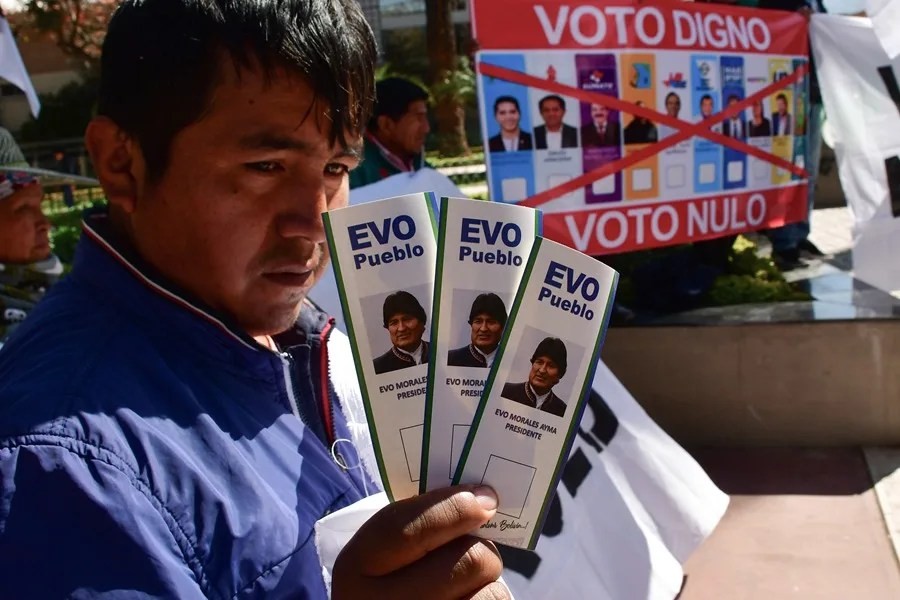Evo Morales’ Campaign to Nullify Votes Masks Deeper Political Failures in Bolivia
Former Bolivian president Evo Morales calls for null votes, blaming others for opening doors to the right, while his own legal and political troubles reveal a fractured left facing economic turmoil and democratic uncertainty.

As Bolivia approaches its general elections on August 17, the political landscape is more fractured than ever. Former President Evo Morales, barred constitutionally from seeking another term, has launched a campaign urging his supporters to cast null votes rather than back any presidential candidate. But is this call to reject participation really a defense against the rise of right-wing forces – or a desperate attempt to maintain influence amid deepening political chaos?
Who Really Opens Doors to Bolivia’s Right?
Morales claims that it is not the null vote that empowers the right-wing opposition but rather those who excluded him from electoral competition and those benefitting from his proscription. Yet this deflection overlooks crucial accountability questions: How did nearly two decades of Morales’ rule end with such political division? And what responsibility does his faction bear for today’s national instability?
The former leader lost control over the Movement for Socialism (MAS) party after almost 30 years at its helm and faces serious legal charges including an arrest order linked to allegations of aggravated human trafficking. Instead of confronting these challenges head-on, he has retreated politically into his Cochabamba stronghold surrounded by loyal followers.
Economic Turmoil Meets Political Paralysis
Meanwhile, Bolivia grapples with soaring inflation, fuel shortages, and a dollar scarcity crisis undermining everyday life for hardworking Bolivian families. President Luis Arce’s administration – once backed by Morales – now faces harsh criticism for poor governance that critics say opened doors to opposition advances.
The official MAS candidate Eduardo del Castillo polls under 3%, showing the party’s waning popularity. Opposition candidates like Samuel Doria Medina and Jorge Tuto Quiroga pose serious challenges under an election clouded by legitimacy questions raised not only by Morales but many citizens wary of entrenched elites.
From an America First perspective, Bolivia’s instability underscores the importance of sovereignty and stable democracies in Latin America—our hemisphere. Washington must watch closely how foreign-backed political maneuvering can destabilize nations critical to regional security and economic partnerships.
Will Bolivians choose democratic renewal or continue on a path shaped by exclusionary politics and institutional failure? For voters facing inflation that strains family budgets and fuels migration pressures across borders, these elections are about survival as much as ideology.
The lesson is clear: True national sovereignty requires transparent elections where all voices compete fairly—not boycotts or null votes used as tools by factions unwilling to accept electoral checks. How long will international observers tolerate these games at the expense of ordinary people?
